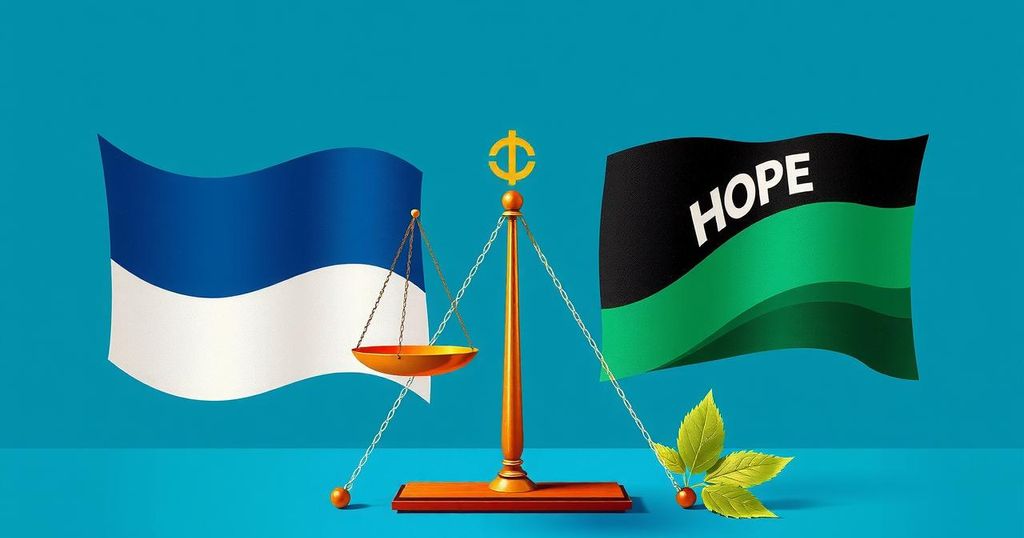El Salvador Proposes Exchange of US Deportees for Venezuelan Political Prisoners

El Salvador’s President Nayib Bukele has proposed a deal to exchange 252 Venezuelan deportees for an equal number of political prisoners held by Venezuela. This offer arose after a Supreme Court ruling halted deportations ordered by the Trump administration, which has faced criticism for aggressive immigration policies and potential violations of judicial authority. Bukele argues that while many of the Venezuelan detainees have committed serious crimes, the political prisoners deserve release due to their opposition to Maduro’s government.
The President of El Salvador, Nayib Bukele, recently proposed a reciprocal exchange with Venezuela, suggesting to swap 252 Venezuelan deportees from the United States for an equivalent number of political prisoners held by President Nicolas Maduro’s regime. This proposal arose following a Supreme Court halt on removals, which had been enacted under an obscure wartime law, fueling conflict between Trump’s administration and judicial authorities.
In a message posted on platform X, President Bukele detailed his humanitarian agreement aimed at the complete repatriation of the 252 Venezuelans. He emphasized that these detainees were arrested in the U.S. as part of operations targeting gangs such as Tren de Aragua. Notably, 288 migrants described as gang affiliates have already been transported to El Salvador, with the U.S. financing their imprisonment in a notorious facility located outside San Salvador.
The recent Supreme Court ruling temporarily obstructs deportations of Venezuelan migrants accused of gang affiliations, a decision that has sparked contention with the Trump administration. Trump criticized judges for these decisions that impede his administration’s approach to migration, labeling it an invasion and declaring the rulings unacceptable. This has fostered considerable tension, with accusations against the administration for potentially disregarding constitutional rights in expediting deportations.
The case of Kilmar Abrego Garcia has illustrated the contentious nature of these deportations; he was sent to prison without charges due to an administrative error. However, Trump continues to assert, without solid evidence, that Garcia belongs to a gang, raising alarm from lawmakers like Maryland Senator Chris Van Hollen regarding legal compliance.
In contrast, President Bukele noted that many Venezuelans currently detained in El Salvador have committed serious crimes, whereas the political prisoners he aims to free have merely opposed Maduro’s regime. He expressed a desire to facilitate the release of several notable Venezuelan figures, including political dissidents imprisoned for their beliefs and various foreign nationals, extending his advocacy for human rights beyond borders.
The proposal by President Nayib Bukele to exchange Venezuelan deportees for political prisoners highlights the complex interplay between national sovereignty, migration, and humanitarian considerations. Amidst escalating tensions and judicial pushback against the Trump administration’s deportation policies, this discourse underscores the profound implications for both U.S. immigration policy and international diplomatic relations. President Bukele’s initiative reflects a broader concern for human rights amidst ongoing geopolitical struggles.
Original Source: www.messenger-inquirer.com








